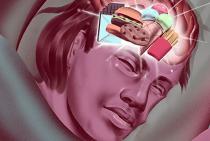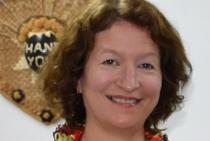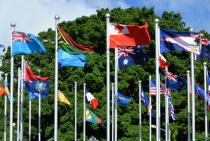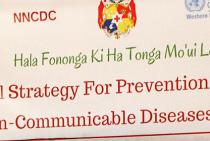New York Times reporting: Food researchers are debating whether highly processed foods like potato chips and ice cream are addictive, triggering our brains to overeat. Highly processed foods continue to dominate the American diet, despite being linked to obesity, heart disease, Type 2 diabetes and other health problems. Recently, the American Journal of Clinical Nutrition explored the science behind addictive behaviour toward food.
You are here
Results for diabetes
Thursday 9 January 2020
Nuku'alofa, Tonga
An Otago University study is proposing that malaria in the past may have shaped the genome of Pacific people today, resulting in a genetic predisposition to Non-Communicable Diseases (NCDs) such as diabetes and gout. The elevated levels of uric acids, which can strengthen the immune response to the mosquito-borne disease are also what causes the inflammatory reactions in gout. “Pacific people have their own genetic variants,” says Dr Ana Gosling.
Thursday 13 June 2019
 Premium content
Premium content
Nuku'alofa, Tonga
Tonga has been commended for its progress in treating blindness caused by diabetes, as part of a program supported by The Queen Elizabeth Diamond Jubilee Trust. Around 16% of Tonga’s adult population, aged 25 – 65 years are affected by diabetes - and about two thirds of those with diabetes will have diabetic eye disease that, without early treatment, can lead to blindness.
Thursday 16 August 2018
 Premium content
Premium content
Nuku'alofa, Tonga
The visit by the Chinese medical ship Ark Peace to Nuku'alofa has shown there is a high demand for medical treatment, with people of all ages filling the ships passageways waiting to see medical practitioners since the ship's arrival on Monday, 13 August. By Eleanor Gee.
Monday 20 June 2016
 Premium content
Premium content
Nuku'alofa, Tonga
The Pacific is on the global frontlines of the fight against Non-Communicable Diseases and the time has come for action with deadlines to reverse the crisis without delay, regional leaders heard at the opening of the Pacific Non-Communicable Diseases Summit in Nuku’alofa, Tonga, this morning.
Wednesday 24 February 2016
2 comments
 Premium content
Premium content
Nuku'alofa, Tonga
Unhealthy people who become sick from eating the wrong foods are placing a huge economic burden on the government’s health systems, while 99% of adult Tongans currently remain at risk from so-called “lifestyle diseases”. Now a new government strategy will place the emphasis on young people, to give them a healthy start to life - but starting with the young means starting before babies are born.
Tuesday 21 May 2013
 Premium content
Premium content
Nuku'alofa, Tonga
An increasing number of Tonga's youth are found to have diabetes, a disease that is incurable, and many of them have contracted diabetes because they eat the wrong foods. A Tonga Youth Diabetes Study Report 2013, released last week recommends a national screening of youths for the disease along with a national awareness campaign.
Monday 19 October 2009
 Premium content
Premium content
Nuku'alofa, Tonga
Tonga does not have food insecurity or hunger but rather a problem of eating low-quality food, which causes a high rate of non-communicable diseases such as diabetes and obesity, Prince Tu'ipelehake said in opening a display of Tongan food on October 16 for International World Food Day.
Wednesday 3 June 2009
 Premium content
Premium content
Canberra, Australia
Better urban design of our cities and suburbs to encourage people to be active and a greater focus on teaching children the importance of healthy eating and exercise are key recommendations of the Australian House of Representative's Health Committee's report "Weighing it up" released on June 1.
Sunday 20 December 1998
Nuku‘alofa, Tonga
A survey conducted by the Diabetic Clinic of Vaiola Hospital recently could prove that Tongans are more at risk of developing Diabetes and heart disease than other people. Matangi Tonga Magazine Vol. 13, no. 4, December 1998.










